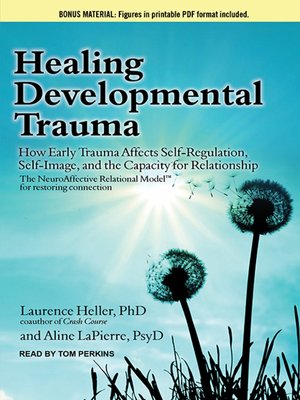Healing Developmental Trauma
audiobook (Unabridged) ∣ How Early Trauma Affects Self-Regulation, Self-Image, and the Capacity for Relationship
By Laurence Heller

Sign up to save your library
With an OverDrive account, you can save your favorite libraries for at-a-glance information about availability. Find out more about OverDrive accounts.
Find this title in Libby, the library reading app by OverDrive.



Search for a digital library with this title
Title found at these libraries:
| Library Name | Distance |
|---|---|
| Loading... |
Explaining that an impaired capacity for connection to self and to others underlies most psychological and many physiological problems, clinicians Laurence Heller, PhD, and Aline LaPierre, PsyD, introduce the NeuroAffective Relational Model™ (NARM), a unified approach to developmental, attachment, and shock trauma that emphasizes working in the present moment.
NARM is a somatically based psychotherapy that helps bring into awareness the parts of self that are disorganized and dysfunctional without making the regressed, dysfunctional elements the primary theme of the therapy. It emphasizes a person's strengths, capacities, resources, and resiliency and is a powerful tool for working with both nervous system regulation and distortions of identity such as low self-esteem, shame, and chronic self-judgment.
NARM is a somatically based psychotherapy that helps bring into awareness the parts of self that are disorganized and dysfunctional without making the regressed, dysfunctional elements the primary theme of the therapy. It emphasizes a person's strengths, capacities, resources, and resiliency and is a powerful tool for working with both nervous system regulation and distortions of identity such as low self-esteem, shame, and chronic self-judgment.







